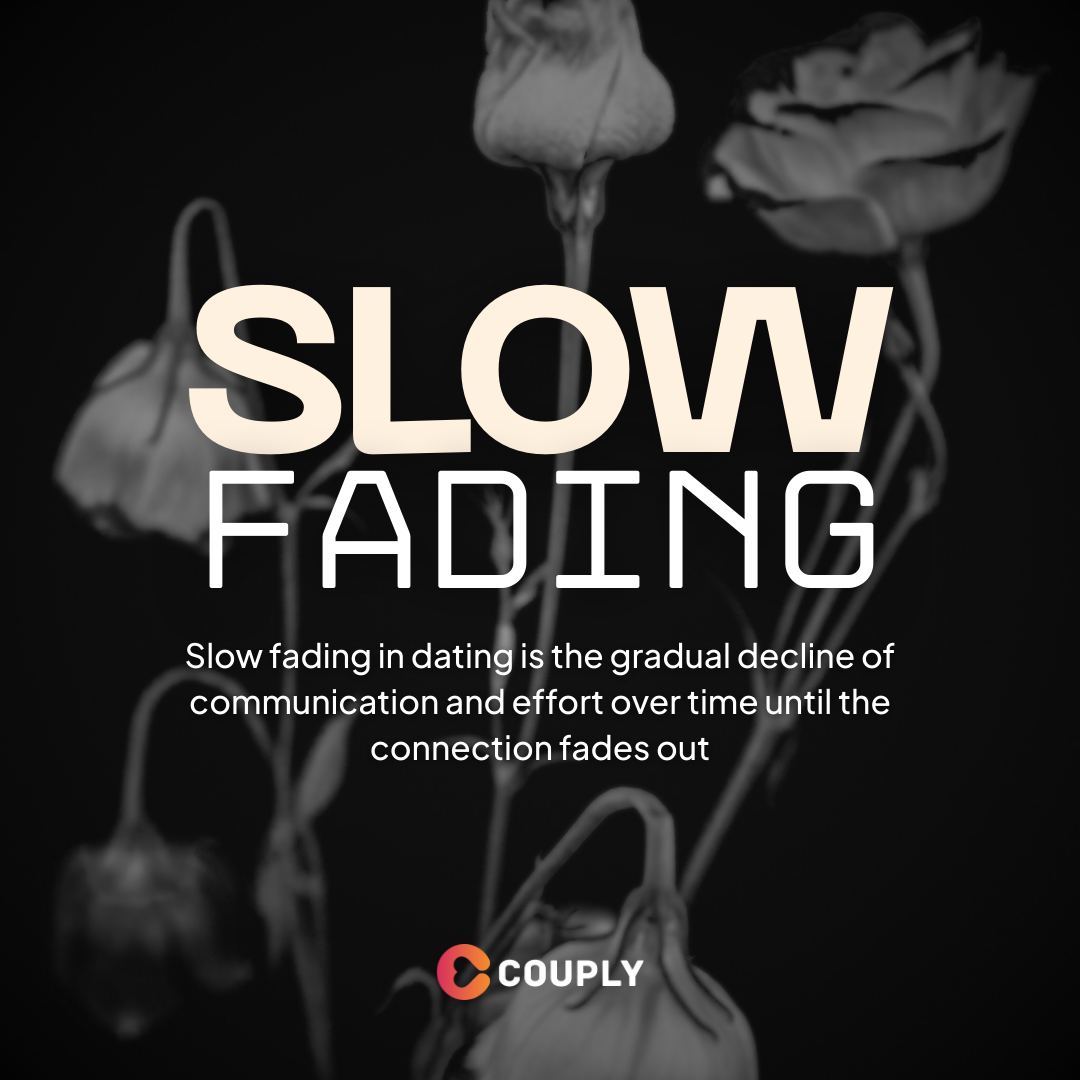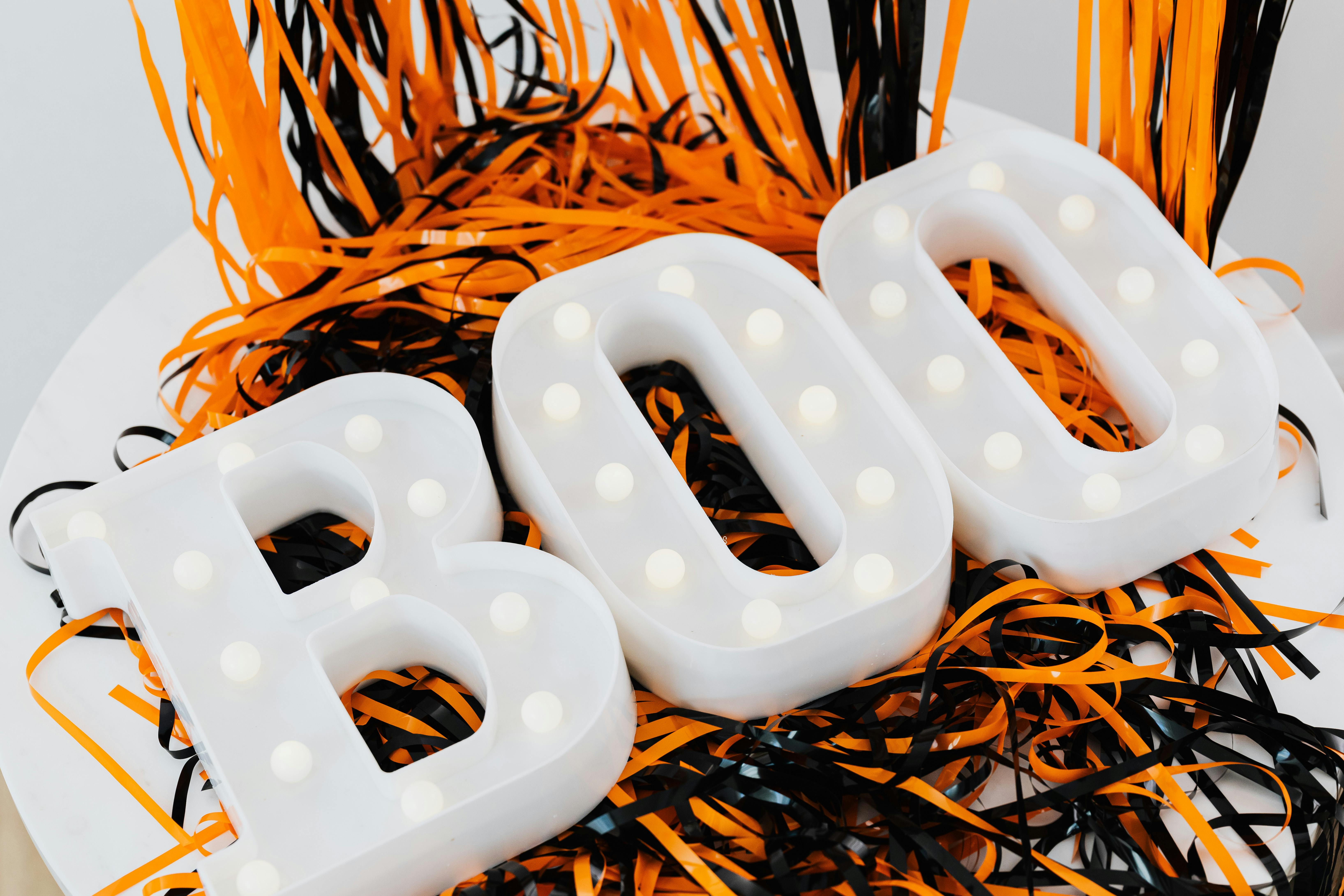Slow fading...It starts small. They take a little longer to text back. Plans that used to lock in easily now hang in limbo. Conversations feel lighter, thinner, almost like filler. You tell yourself they’re just busy. But deep down, your stomach knows the truth: you might be getting slow faded.
Unlike ghosting, where someone cuts off contact completely, the slow fade is death by a thousand paper cuts. It’s the slow withdrawal of attention, affection, and energy until what you thought was a relationship collapses under silence.
It’s sneaky, it’s confusing, and honestly, it can hurt even more than ghosting because it drags you through weeks of doubt before the inevitable ending.
So let’s break it down: what slow fading is, why people do it, the red flags to watch for, and how to handle it like someone who knows their worth.
What Is Slow Fade vs. Other Breakup Styles?

To really understand the pain of the slow fade, let’s compare it to other ways people exit relationships.
- Ghosting: One day you’re talking, the next day they disappear. It’s brutal, but it’s clear.
- Slow Fade: They don’t vanish. They linger. They reply, but later and later. They say they’re busy, but there’s always time for something else. They don’t cancel outright—they just stop showing up emotionally.
It’s a breakup by erosion, not explosion. And it leaves you second-guessing yourself.
Why do people do it?
- Avoidance. They don’t want the discomfort of an honest breakup conversation.
- Guilt. They think fading is “kinder” than being direct.
- Convenience. They want out, but they want to keep you warm in case they change their mind.
Whatever the reason, the impact is the same: confusion, self-doubt, and wasted energy.
7 Red Flags of Being Slow Faded
If you’re wondering, “Am I imagining this, or are they pulling away?” here are the signs you need to pay attention to.
1. Response Times Stretch Longer and Longer
At first, you’d get replies in minutes or hours. Now it’s days. And when they finally text back, the energy feels flat.
Pay attention to patterns:
- Did they used to check in daily and now they “forget”?
- Are they online but not replying to you?
- Do their excuses always involve being busy, yet they still have time for friends or social media?
When communication shifts from consistent to crumb-like, that’s not “busy”—that’s distance.
2. Texts Become Cold and Generic
Once upon a time, their messages carried personality. Memes, inside jokes, sweet goodnights. Now it’s boiled down to:
- “Ok”
- “Yeah”
- “Busy, ttyl”
And emojis? Forget it. Where there used to be warmth, now there’s only placeholders.
If you feel like you’re texting a stranger—or worse, like you’re dragging energy out of them—this isn’t a phase. It’s withdrawal in disguise.
3. Plans Fade Into Fog
When you bring up hanging out, do they say “soon” but never lock down specifics? Do dates get rescheduled, postponed, or “forgotten”?
The slow fade thrives in vagueness. They won’t say “I don’t want to see you.” Instead, they push things off until you stop asking.
Concrete plan-making is a sign of investment. Vague promises are a sign of avoidance.
4. You Do All the Reaching Out
Check your text thread. Is it 80% you, 20% them? Are you always the one suggesting plans, starting conversations, or asking how their day was?
A healthy connection flows both ways. When you’re the only one swimming upstream, you’re not in a relationship—you’re in a one-person rescue mission.
And here’s the kicker: if you stop reaching out, the silence stretches. That’s not bad luck—that’s them letting the connection die.
5. You’re Always on the Back Burner
They’re “too busy” for you, but not too busy for brunch with friends, game nights, or endless TikTok scrolling. You don’t get prioritized—you get deprioritized.
Being slow faded often means being kept as a backup. They won’t fully cut you loose, but they won’t give you the time and attention you deserve either. It’s the emotional equivalent of keeping you in the drafts folder.
6. Your Instincts Are Screaming
Your gut knows. It notices the shift before your brain admits it. That subtle unease, that quiet ache when their attention changes—it’s real.
We often gaslight ourselves into ignoring intuition: “Maybe I’m overthinking. Maybe they’re stressed. Maybe I’m too needy.”
But intuition is usually spot on. If something feels off, it’s because it is.
7. Emotional Engagement Has Disappeared
Even if they still text or show up, their heart is gone. Conversations are shallow. They no longer ask about your day, your dreams, your feelings. The laughter is thinner. The intimacy is absent.
A relationship doesn’t die when the messages stop—it dies when the emotional connection evaporates. And that’s exactly what the slow fade strips away.
Why the Slow Fade Feels Worse Than a Breakup
At first glance, you might think the slow fade is the “gentler” option compared to ghosting or a blunt breakup. After all, they’re not vanishing without a trace, right? They’re still technically responding, still technically around. But that’s exactly what makes it sting more. The slow fade doesn’t give you a clean cut. It gives you death by a thousand micro-cuts.
Here’s why it can actually hurt more than someone ending things outright:
1. It Drags Out the Pain
A breakup is sharp. One conversation, one painful moment, and then the healing begins. The slow fade? It drags on for weeks, sometimes months. Every unanswered text or half-hearted reply feels like another little wound. Instead of ripping off the Band-Aid, they peel it back slowly, leaving you raw and exposed.
2. It Traps You in Limbo
When someone fades, you’re left asking, “Is it me? Are they busy? Do they still care?” You wait for clarity that never comes. That limbo keeps you emotionally hooked, hoping things will bounce back to normal, even as the connection quietly dies.
3. It Erodes Your Self-Worth
The silence and distance feel personal, even if they aren’t. You start overanalyzing: Did I text too much? Say the wrong thing? Instead of placing the blame where it belongs—on their avoidance—you turn it inward. That slow erosion of confidence can leave deeper scars than an honest rejection.
4. It Feels Like Gaslighting by Silence
The mixed signals mess with your head. They’re still technically there, but not really. They haven’t said it’s over, but they’re acting like it is. That emotional disconnect creates a dissonance that can feel like gaslighting—you sense the truth, but their half-presence keeps you doubting yourself.
5. It Denies You Closure
A breakup conversation, as painful as it is, offers answers. The slow fade offers none. No explanation, no real ending, just a trail of unanswered messages and shrinking affection. Without closure, moving on feels harder, because you never got the words that confirmed what your gut already knew.
6. It’s a Betrayal of Courage
At its core, the slow fade isn’t about sparing your feelings. It’s about sparing theirs. They avoid the discomfort of honesty, leaving you to carry the emotional weight of confusion. That lack of courage stings because it shows you weren’t even worth a straightforward conversation.
The slow fade feels worse than a breakup because it’s not one big wound—it’s dozens of tiny cuts that bleed you dry over time. It prolongs the pain, robs you of closure, and leaves you questioning your worth instead of giving you a clean slate to heal.
How to Respond When You Recognize the Slow Fade
So you’ve spotted the signs. Now what? Here’s how to handle it without losing your self-respect.
1. Trust Your Gut
Stop gaslighting yourself. If you feel the shift, it’s happening. Don’t dismiss it as paranoia.
2. Pause the Chase
Resist the urge to double-text, over-explain, or beg for attention. Pull back. See if they step up or let the silence stretch.
3. Call It Out Directly
You don’t have to accuse, but you can be clear. Try:
- “I’ve noticed you’ve been more distant. Are you still interested?”
- “It feels like our connection has shifted. Where do you see this going?”
Direct questions force direct answers—or reveal the lack of them.
4. Reassess Their Effort
Pay attention to how they respond. Do they lean back in and try, or do they continue to fade? Their actions tell you everything you need to know.
5. Reclaim Your Energy
Don’t waste months in someone else’s indecision. If they’re pulling away, redirect your time and heart toward people who value you.
6. Move On With Dignity
You don’t need a dramatic exit speech. Sometimes the strongest move is walking away gracefully and letting them fade into the background where they belong.
When Is the Best Time to Walk Away?
The moment you realize you’re doing all the work.
The moment communication feels like pulling teeth.
The moment you stop recognizing the joy you once felt with them.
Walking away doesn’t mean you lost. It means you chose clarity over confusion. You chose self-worth over scraps.
The slow fade is a coward’s way out. It spares them the discomfort of honesty while dragging you through weeks of confusion and doubt. But you don’t have to play along.
If you see the signs, name them. If their effort doesn’t return, reclaim your power and walk.
Because the truth is simple: the right person won’t make you question if you’re being slow faded. They’ll make their care obvious, consistent, and steady.
So the real red flag is not really just the slow fade itself—it’s ignoring your own intuition when it tells you you deserve more.








